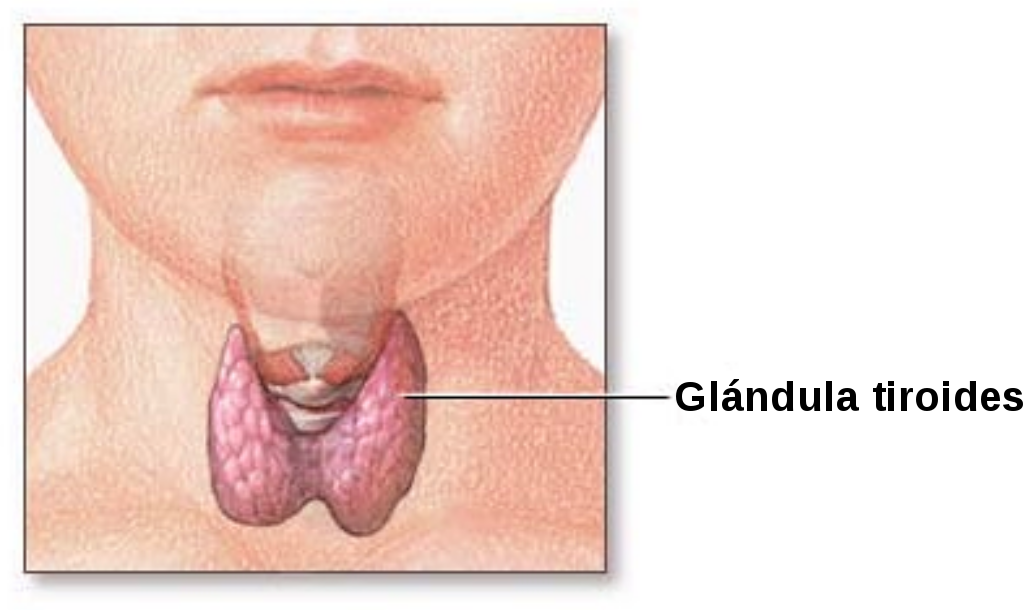 Can Imbalanced Thyroid Lead To Weight Gain?
Can Imbalanced Thyroid Lead To Weight Gain?
Thyroid is a small, butterfly shaped gland that is present at the bottom front of our neck, just below the Adam’s apple. This two-inch long gland forms an important part of the endocrine system. By using up iodine from our diet, the gland goes on to manufacture two main hormones called triiodothyronine (T3) and thyroxine (T4), and secretes them into the bloodstream. These hormones help in regulating metabolism, pave way for general growth and development, and allow our body to perform various everyday tasks.
How it Works?
The thyroid gland remains in constant touch with two glands in the brain, pituitary and hypothalamus, to maintain hormone balance, and ensure their adequate supply. In case the hormone output goes out of control, these two glands make sure to communicate the same to the thyroid gland. For example, when the T3 and T4 levels are too low, the pituitary gland releases more TSH (thyroid Stimulating Hormone), and when the T3 and T4 levels are more than adequate, less TSH is released. The release of TSH is regulated by TRH (TSH Releasing Hormone), which is released by the hypothalamus as and when the need arises.
What is a Thyroid Disorder?
Thyroid disorder is experienced when the gland is either overactive or underactive, and it is not able to perform its basic functions aptly. Several health issues can crop up when the thyroid gland starts to dysfunction and release too little or too much of those hormones. While the former is called hypothyroidism, the latter is referred to as hyperthyroidism. Out of these two, the former is more commonly prevalent and, for some reason, affects females way more than men. In fact, statistics suggest that women, especially those in their 20s and 30s, are ten times more likely to experience thyroid gland dysfunction. The likelihood as well as the severity, of course, increases as they age.
Hypothyroidism- Causes And Consequences
Some of the common and most classic symptoms of abnormally low levels of thyroid hormones include chronic fatigue, weakness and muscle ache, itchy and dry skin, mood swings, anxiety and depression, insomnia, loss of hair, frequent and heavy periods, and an increased sensitivity to cold temperature. Prolonged hypothyroidism can also lead to reduced energy levels, mental functions and bowel movements. It can also lead to a gradual memory loss and cognitive decline.
There are various reasons that could contribute towards the onset of hypothyroidism. This includes nutrient deficiency, especially iodine, and some auto-immune diseases. Among females, there are a whole host of other factors that could trigger a thyroid gland dysfunction. These include pregnancy, thyroid surgery, use of certain medications, radiation therapy to the neck area, etc.
Most of these cause goitre, which is a certain swelling of the gland that makes it under-active. It, thus, produces much less hormones than the body needs. If left unattended for long, hypothyroidism can lead to severe health complications, including heart problems, infertility, damaged nerves and worst cases, even death.
Thyroid and Weight Gain
You know that you have been eating right, working out regularly and maintaining a healthy lifestyle. But still, there is this unexplained gain of weight. Apart from that, you have also been feeling overly tired of late for no specific reason. If the answer is yes, then you must get in touch with your physician, who will most likely recommend you a thyroid test. Unfortunately, hypothyroidism is strongly associated with weight gain. The major reason behind weight gain among hypothyroid patients is the reduced metabolism. This can lead to a gain in the weight, and the more severe the hypothyroidism, the more pounds you are likely to put on.
And while you might indulge in the healthiest of foods, but a slow rate of metabolism does not allow your body to convert that food into energy all that quickly as it should. Ultimately, if your thyroid levels are not balanced, you could not only end up gaining weight, but also feel much less energised than you should. Also, while some of the weight gain is fat, most of it is just the fluid build-up, as an under-active thyroid can significantly affect our kidney function.
Simple Steps to Reducing Weight
Managing your weight can a little challenging, especially for those with an under-active thyroid. Nonetheless, there are some simple steps you could follow to ensure that you not only lose a little, but also manage to maintain the same.
- Look out for the symptoms, timely – The first step towards treating an underactive thyroid is to diagnose it in the early stages. You could do a neck check, and see if a lump forms around that region, say, when you swallow water.
- Cut out sugars and simple carbohydrates from your diet, as with a reduced metabolic rate, your body will not be able to burn them off.
- Similarly, regulate the amount of cholesterol you have been consuming, as it can wreak havoc on your health.
- Take to anti-inflammatory foods, as the idea it to keep the inflammation around the gland as less as possible.
- Consciously stick to small and frequent meals, thus allowing your body to digest them side by side.
- Indulge in regular workouts and maintain a rather active lifestyle and routine.
Watch Video: Agni – Ayurveda Digestion Mantra
About the Author:
Dr Sonica Krishan is Author and Speaker in the areas of Healthy and Joyous Living through Ayurveda, Meditation, Yoga and other Contemplative practices. She is a leading Ayurveda Professional in India. She is also Health Writer, Columnist, Editor, Ayurveda Consultant and Holistic Healing Coach. Dr Sonica is open for National as well as International Collaborations with interested people / institutions in fields of Ayurveda, Meditation and Yoga.
Dr Sonica Krishan’s Books are available at Amazon
Related Blog Posts
Ayurveda Remedies For Thyroid Disease
Hormone Imbalance? Ayurveda Could Help!
